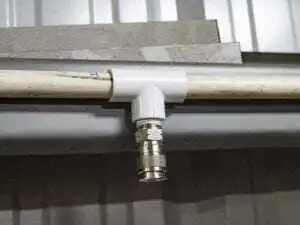Aug . 12, 2024 16:06 Back to list
Leading Manufacturers and Suppliers of PPR Polypropylene Pipes for Reliable Plumbing Solutions
The Role of PPR Polypropylene Pipes in Modern Plumbing and Construction
Polypropylene Random Copolymer (PPR) pipes have gained significant popularity in the plumbing and construction industry for their unique properties and advantages. These pipes, made from a durable thermoplastic material, offer numerous benefits over traditional piping systems made of metal or other plastic materials. As consumers and professionals become increasingly aware of the advantages of PPR pipes, the demand for quality PPR polypropylene pipe manufacturers continues to rise.
One of the standout features of PPR pipes is their excellent resistance to corrosion. Unlike metal pipes that are susceptible to rust and degradation, PPR pipes do not corrode when exposed to water or other corrosive substances. This intrinsic property not only extends the life expectancy of the piping system but also ensures that the water quality remains unaffected. This is particularly crucial in residential and commercial plumbing applications, where clean and safe water supply is paramount.
The Role of PPR Polypropylene Pipes in Modern Plumbing and Construction
Another significant advantage of PPR pipes is their ease of installation. They are lightweight compared to traditional metal pipes, making them easier to handle and transport. Additionally, PPR pipes can be joined using a simpler fusion welding process, ensuring a tight and leak-proof connection. This method not only simplifies installation but also reduces labor costs and installation time, making it an attractive option for contractors.
ppr polypropylene pipe manufacturers

Moreover, PPR pipes exhibit low friction loss when water flows through them, ensuring efficient water transport with minimal energy loss. This property is critical in large-scale plumbing systems, where pressure drops can lead to inefficient water delivery and increased energy costs. The smooth interior surfaces of PPR pipes also resist the accumulation of deposits and scale, helping maintain a consistent flow rate over time.
Environmental considerations are also becoming increasingly important in the construction and plumbing industries. PPR pipes are recyclable, contributing to a circular economy and reducing environmental impact. Manufacturers are investing in sustainable practices, ensuring that PPR pipes are produced with minimal environmental footprint. This eco-friendly aspect appeals to consumers who are looking for more sustainable building materials in their projects.
The growing demand for PPR polypropylene pipes has resulted in a surge of manufacturers entering the market. When selecting a PPR pipe manufacturer, it is essential to consider factors such as quality certifications, product range, and customer service. Reputable manufacturers adhere to international quality standards, ensuring their products meet the necessary performance specifications.
In conclusion, PPR polypropylene pipes represent an innovative solution in the plumbing and construction industry, combining durability, efficiency, and sustainability. As the market continues to expand, the role of reliable PPR pipe manufacturers becomes increasingly critical in meeting the growing demand for quality plumbing materials. With their numerous advantages, PPR pipes are well-positioned to become the preferred choice for contractors, builders, and consumers looking for reliable and long-lasting plumbing solutions.
-
HDPE Sprinkler Pipe Manufacturers - Quality & Durable Solutions
NewsAug.17,2025
-
Durable DN100 PVC Well Casing Pipes for Reliable Water Supply
NewsAug.16,2025
-
HORON 25mm PPR Plumbing Pipes: Durable, Leak-Proof Water Systems
NewsAug.15,2025
-
Durable UPVC Column Pipes for Submersible Pumps | Efficient Water Flow
NewsAug.14,2025
-
DN100 PVC Well Casing Pipes - Durable & Corrosion-Resistant
NewsAug.13,2025
-
Flexible 32mm HDPE Pipes in Coil | Durable Water & Gas Lines
NewsAug.12,2025

